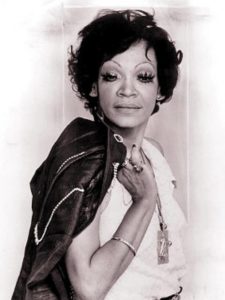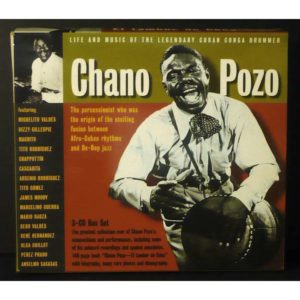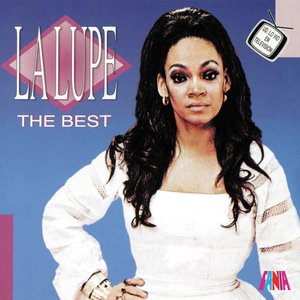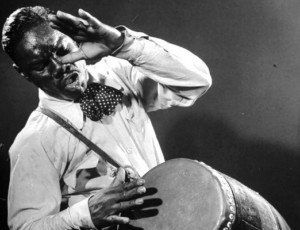INVESTIGADORA “RESCATA” A LOS OLVIDADOS DE LA MÚSICA CUBANA EN LA ISLA. BATANGA.
La historia de excepcionales personajes de la música cubana como las cantantes Celeste Mendoza, Freddy o la jazzwoman Numidia Vaillant, rescatados del olvido en el blog Desmemoriados, de la investigadora Rosa Marquetti, se revela en un libro impreso presentado esta semana en La Habana.
Marquetti declaró en una entrevista con EFE que este libro le ha permitido volcar su “obsesión” sobre personalidades un tanto olvidadas de la música cubana que de alguna manera habían sido afectadas por su situación en la diáspora a partir de 1959, cuando se estrenó en el poder la revolución en la Isla.
Pero también “conectar” con aquellos cubanos “desconectados” —porque no tienen acceso a internet— y con personas que prefieren leer en papel el libro ahora presentado por el sello editorial Ojalá dentro del programa de la Feria Internacional del Libro 2019.
La investigadora musical reflota historias que le motivaron enfoques biográficos en su segundo libro tras el volumen Chano Pozo. La vida (1915-1948), en el que recorrió la trayectoria del percusionista encumbrado en Nueva York, donde concibió la mezcla de elementos afrocubanos con el jazz que se hacía en Estados Unidos.
Con un estilo elegante y seductor, sus indagaciones resumen historias de vida de 20 nombres, como el percusionista Armando Peraza, el excéntrico timbalero Chori, el showman Dandy Crawford, el icono musical de los años sesenta Myriam Acevedo, los cantantes Miguelito Cuní, Moraima Secada, la temperamental La Lupe, Maggy Prior, la pianista Zenaida Manfugás o los legendarios bailadores de jazz del barrio habanero de Santa Amalia.
Confiesa que es particularmente querida para ella la historia de Pilar Morales, una cantante cubana que vive aún en Barcelona, donde se afincó en 1955, y un año después se casó con el talentoso pianista invidente Tete Montoliu, considerado el gran padre del jazz español y uno de los más singulares del género en Europa. El libro relata cómo Morales se abrió camino a principios de su llegada a España, donde fue bautizada como la “Voz del Trópico”, hasta que su exitosa carrera se diluyó en el tiempo.
Marquetti dice que le gusta hablar de los éxitos, pero también de algunos reveses que los músicos confrontan en sus vidas, como la creación del ritmo batanga por ese gran pianista, compositor y orquestador que fue Bebo Valdés (1918-2013).
El batanga es un género considerado entre los músicos como una creación tan importante como el mambo, solo que no tuvo la suerte de tener el respaldo comercial en su época para llegar a ser un hit internacional, pero musicalmente es una de las grandes obras de Valdés, acota la musicóloga. De hecho, Valdés, quien se marchó definitivamente de Cuba en 1960, estuvo sumido prácticamente en el anonimato hasta 2002, cuando participó en un disco que fue nominado al Premio Grammy Latino, y en el mismo año grabó el exitoso Lágrimas Negras junto al cantaor Diego el Cigala que vendió 700.000 copias.
https://youtu.be/S3r01be0cps
“BATANGA” BEBO VALDES.
Uno de los últimos capítulos de Desmemoriados revive a Freddy, una poderosa voz estrechamente vinculada a la canción nocturna del cabaré Salón Rojo del hotel Capri, que para Marquetti marcó un “hito musical” sin importar su rotunda figura “antidiva”.
Freddy quedó inmortalizada como una gran estrella en la novela Tres tristes tigres, de Guillermo Cabrera Infante.
También recupera a La Lupe, ese “mito extraordinario” de la farándula cubana, con un enfoque “muy peculiar” de la intérprete que acaparó miradas con sus increíbles “performances” en Cuba antes de sus éxitos en el exilio latino de Nueva York.
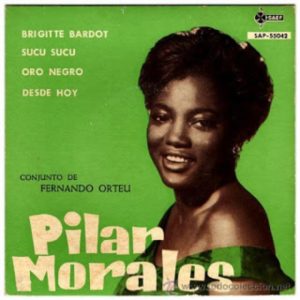 RESEARCHER IN CUBA “RESCUES” THE “FORGOTTEN” OF THE CUBAN MUSIC.
RESEARCHER IN CUBA “RESCUES” THE “FORGOTTEN” OF THE CUBAN MUSIC.
The story of exceptional characters of Cuban music such as the singers Celeste Mendoza, Freddy and the jazzwoman Numidia Vaillant, rescued from oblivion in the blog ‘Desmemoriados’, by the researcher Rosa Marquetti, is revealed in a printed book presented this week in Havana.
Marquetti said in an interview with EFE that this book has allowed her to turn her “obsession” over somewhat forgotten personalities of Cuban music that had been affected in some way by their situation in the diaspora since 1959, when it was premiered in the power the revolution on the Island.
But also “connect” with those Cubans “disconnected” -because they do not have access to the internet- and with people who prefer to read on paper the book now presented by the Ojalá publishing house within the program of the 2019 International Book Fair.
The musical researcher reflotates stories that motivated biographical approaches in her second book after the Chano Pozo volume. La vida (1915-1948), in which he toured the career of the percussionist encumbrado in New York, where he conceived the mixture of Afro-Cuban elements with the jazz that was made in the United States.
With an elegant and seductive style, his inquiries summarize the life stories of 20 names, such as the percussionist Armando Peraza, the eccentric timbalero Chori, the showman Dandy Crawford, the musical icon of the sixties Myriam Acevedo, the singers Miguelito Cuní, Moraima Secada , the temperamental La Lupe, Maggy Prior, the pianist Zenaida Manfugás or the legendary jazz dancers from the Santa Amalia neighborhood of Havana.
She admits that the story of Pilar Morales, a Cuban singer who still lives in Barcelona, where she settled in 1955 is particularly dear to her, and a year later she married the talented blind pianist Tete Montoliu, considered the great father of Spanish jazz and one of the most unique of the genre in Europe. The book tells how Morales made his way to the beginning of his arrival in Spain, where he was baptized as the “Voice of the Tropic”, until his successful career was diluted in time.
Marquetti says he likes to talk about the successes, but also about some setbacks that the musicians face in their lives, such as the creation of the batanga rhythm by that great pianist, composer and orchestrator who was Bebo Valdés (1918-2013).
The batanga is a genre considered among musicians as a creation as important as the mambo, only that it was not fortunate to have the commercial backing in its time to become an international hit, but musically it is one of the great works of Valdés , says the musicologist. In fact, Valdés, who left Cuba definitively in 1960, was practically anonymous until 2002, when he participated in an album that was nominated for the Latin Grammy Award, and in the same year he recorded the successful Lágrimas Negras with cantaor Diego the Cigala that sold 700,000 copies.
One of the last episodes of Desmemoriados revives Freddy, a powerful voice closely linked to the nightly song of the Red Room cabaret at the Capri hotel, which for Marquetti marked a “musical milestone” regardless of his resounding “antidiva” figure.
Freddy was immortalized as a great star in the novel Tres tristes tigres, by Guillermo Cabrera Infante.
She also recovers La Lupe, that “extraordinary myth” of Cuban entertainment, with a “very peculiar” approach to the performer who monopolized looks with her incredible “performances” in Cuba before her successes in the Latin exile of New York.
Agencies/ DDC/ Internet Photos/ Extractis/ YouTube/ Arnoldo Varona/ www.TheCubanHistory.com
THE CUBAN HISTORY, HOLLYWOOD.



